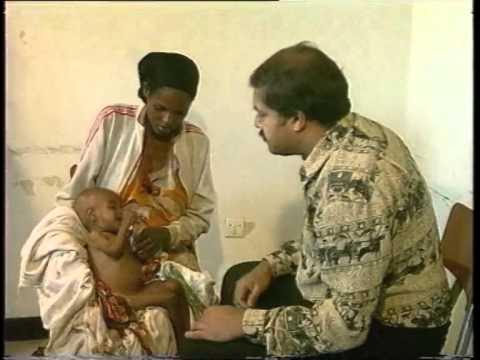PinaSiglaTV | Ep 4 Common Childhood Illnesses (English) | APMC - Student Network
Summary
TLDRThis educational video, presented by various Philippine medical associations, focuses on common childhood illnesses, including pneumonia, diarrhea, malaria, measles, and malnutrition. It emphasizes the importance of prevention, early diagnosis, and treatment. Using the Integrated Management of Childhood Illness (IMCI) approach, the video highlights key health measures like vaccination, proper nutrition, and good hygiene practices. Dr. Claire explains each illness in detail, offers practical advice for management, and stresses the need for public health efforts to reduce child mortality due to these preventable conditions.
Takeaways
- 😀 IMCI (Integrated Management of Childhood Illness) focuses on the overall health of children, particularly those under 5 years old, aiming to prevent death, disease, and disability.
- 😀 Pneumonia is a leading cause of death in children under 5, caused by viruses, bacteria, or fungi. Prevention includes vaccination and good hygiene practices.
- 😀 Diarrhea is the second leading cause of death in children under 5. It can be prevented through vaccination, proper hygiene, and exclusive breastfeeding for babies under 6 months.
- 😀 Malaria, spread by mosquito bites, is a major health risk for children under 5 in tropical regions like the Philippines. Prevention involves mosquito protection and immediate consultation for treatment.
- 😀 Measles is a highly contagious viral infection with symptoms including high fever, runny nose, and red rashes. Vaccination with the MMR vaccine is the primary preventive measure.
- 😀 Malnutrition, including undernutrition and micronutrient deficiencies, is a major concern in the Philippines, causing significant child mortality. Prevention involves a balanced diet and proper nutrition practices.
- 😀 The first 1000 days of a child's life, from pregnancy to 2 years old, are critical for growth and development, and nutrition during this period is crucial to preventing long-term health issues.
- 😀 Pneumonia management includes fluid intake, rest, and consultation with a doctor. Antibiotics may be needed if caused by bacteria, and hospital care is necessary for severe cases.
- 😀 The key to preventing pneumonia in children includes exclusive breastfeeding, vaccination, good hygiene, and avoiding secondhand smoke.
- 😀 In addition to immediate care, children suffering from common illnesses like measles, diarrhea, or pneumonia need a balanced diet and adequate hydration to support recovery.
Q & A
What is the main focus of the Integrated Management of Childhood Illness (IMCI)?
-IMCI focuses on improving the overall well-being of children, particularly those under five years old, by preventing death, disease, and disability while promoting better growth and development.
What are the five conditions covered by IMCI?
-The five conditions covered by IMCI are pneumonia, diarrhea, malaria, measles, and malnutrition, all of which are preventable and treatable.
How is pneumonia transmitted, and what are its symptoms?
-Pneumonia is transmitted through coughing, sneezing, and direct contact. Symptoms include fever, cough, fast breathing, chest in-drawing, and poor feeding in babies.
What are the recommended preventive measures for pneumonia?
-Preventive measures for pneumonia include vaccinating children with the pneumococcal vaccine, practicing good hygiene, ensuring exclusive breastfeeding for children under six months, and avoiding smoking near children.
What is the primary treatment for diarrhea in children?
-The primary treatment for diarrhea includes rehydration with oral rehydration salts, zinc supplements, and proper nutritional support.
What causes malaria, and how can it be prevented?
-Malaria is caused by a parasite transmitted through the bites of infected female anopheles mosquitoes. It can be prevented by using mosquito nets, applying mosquito repellent, installing window screens, and wearing long clothes.
What are the symptoms of measles and how can it be managed?
-Measles symptoms include high fever, runny nose, cough, red watery eyes, and rashes. Management involves plenty of fluids, rest, vitamin A supplementation, and avoiding aspirin for fever.
How can malnutrition in children be prevented?
-Malnutrition can be prevented by encouraging a balanced diet including fish, chicken, eggs, rice, fruits, and vegetables, ensuring exclusive breastfeeding for babies under six months, providing safe drinking water, and promoting physical activity.
What is the significance of the first 1000 days for a child’s growth and development?
-The first 1000 days, from pregnancy to two years old, are critical for a child’s growth and development. Programs focusing on this period, like Republic Act 11148, aim to improve maternal and child health and nutrition.
What should be done if a child’s condition worsens when suffering from pneumonia or other serious illnesses?
-If a child’s condition worsens, such as experiencing difficulty breathing or severe dehydration, they should be immediately brought to a hospital for further evaluation and treatment.
Outlines

このセクションは有料ユーザー限定です。 アクセスするには、アップグレードをお願いします。
今すぐアップグレードMindmap

このセクションは有料ユーザー限定です。 アクセスするには、アップグレードをお願いします。
今すぐアップグレードKeywords

このセクションは有料ユーザー限定です。 アクセスするには、アップグレードをお願いします。
今すぐアップグレードHighlights

このセクションは有料ユーザー限定です。 アクセスするには、アップグレードをお願いします。
今すぐアップグレードTranscripts

このセクションは有料ユーザー限定です。 アクセスするには、アップグレードをお願いします。
今すぐアップグレード5.0 / 5 (0 votes)






